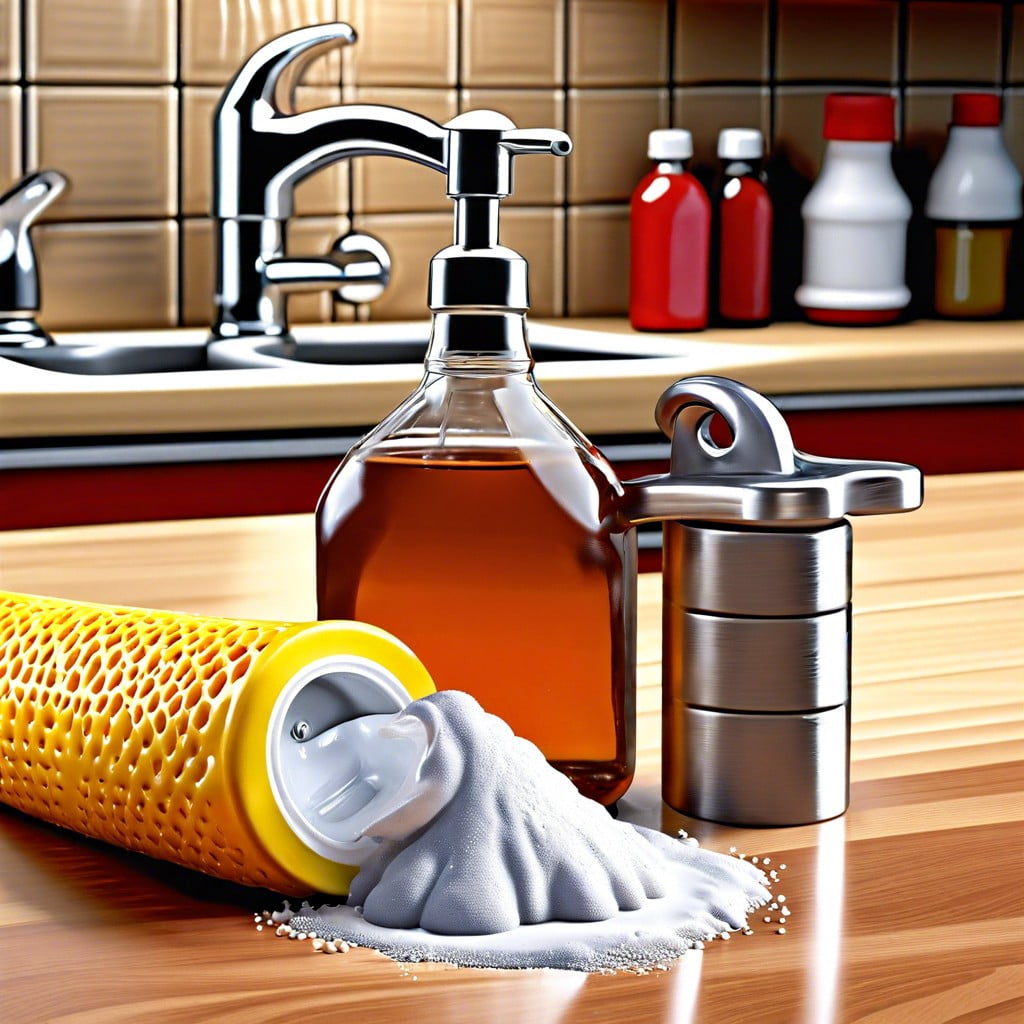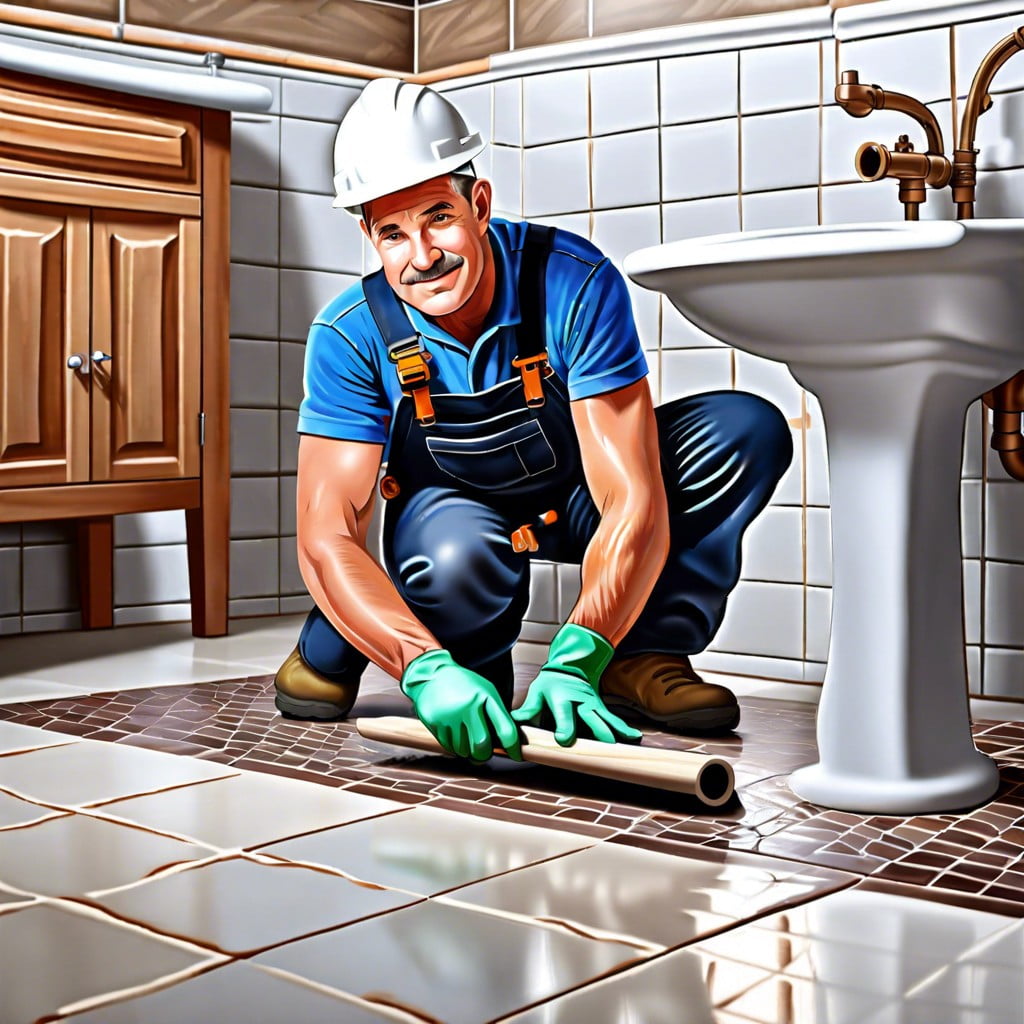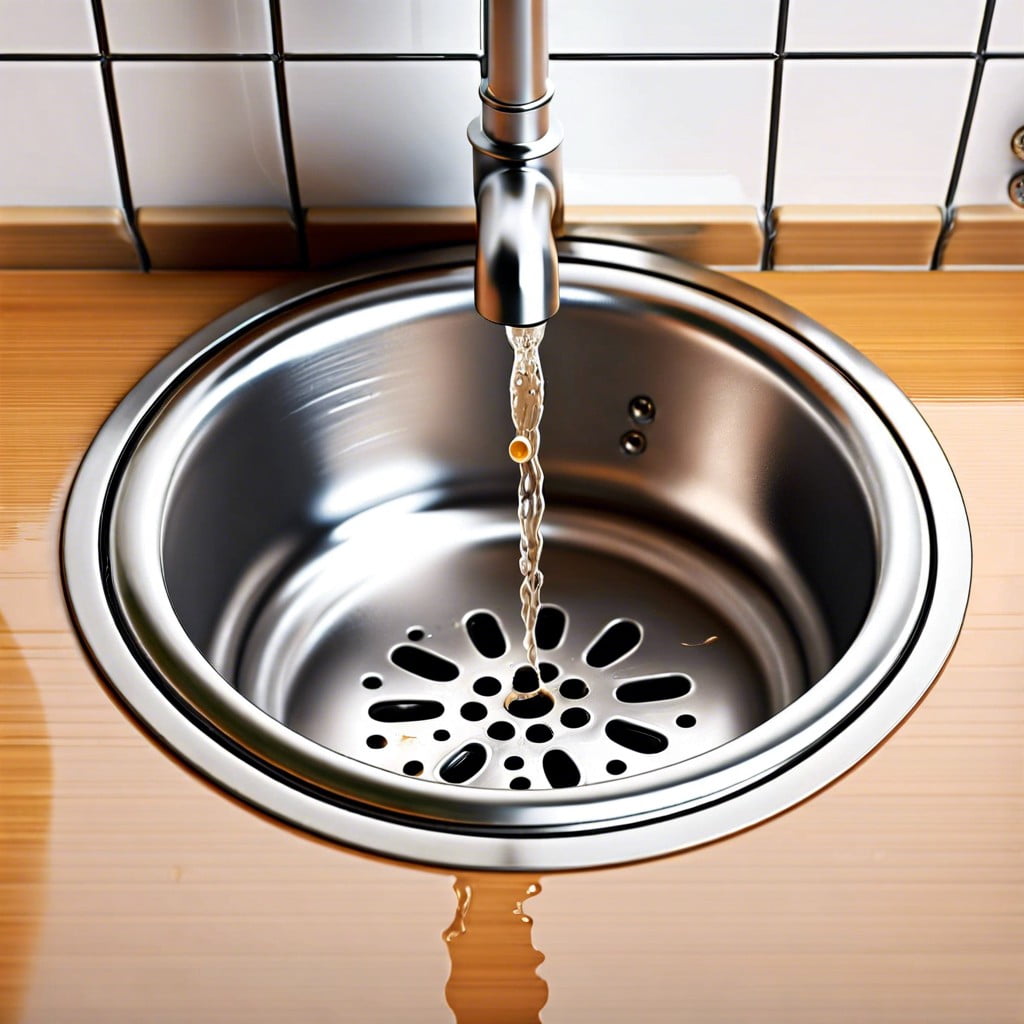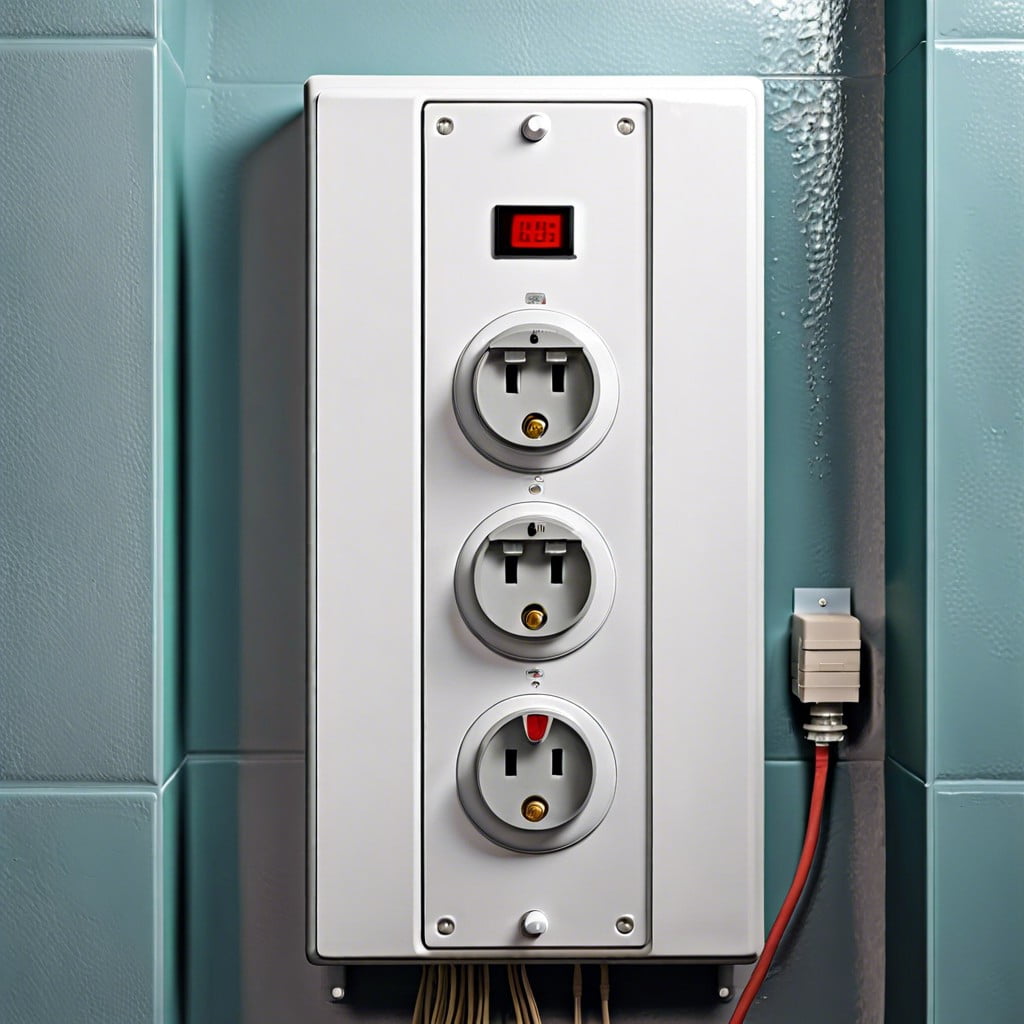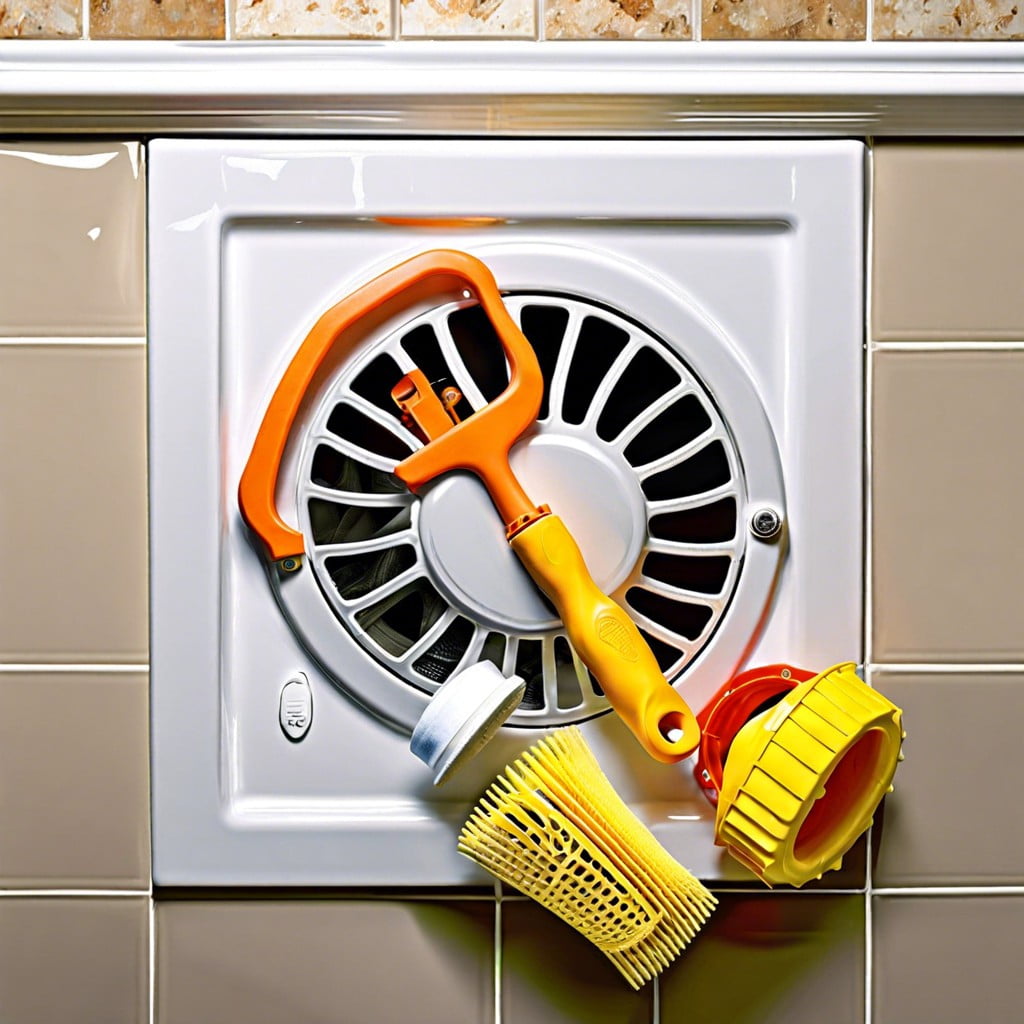Last updated on
Learn how to eliminate unpleasant odors emanating from your bathroom sink drain effectively with practical tips and solutions.
Key takeaways:
- Bacteria, biofilm, dry P-trap, and clogs cause sink drain odors.
- Maintaining the P-trap and keeping it filled with water is crucial.
- Boiling water, baking soda, vinegar, and lemon peels can eliminate odors.
- Regular sink maintenance includes running hot water and using baking soda and vinegar.
- Call a plumber for persistent odors, gurgling noises, or recurrent clogs.
Causes of Bathroom Sink Drain Odors
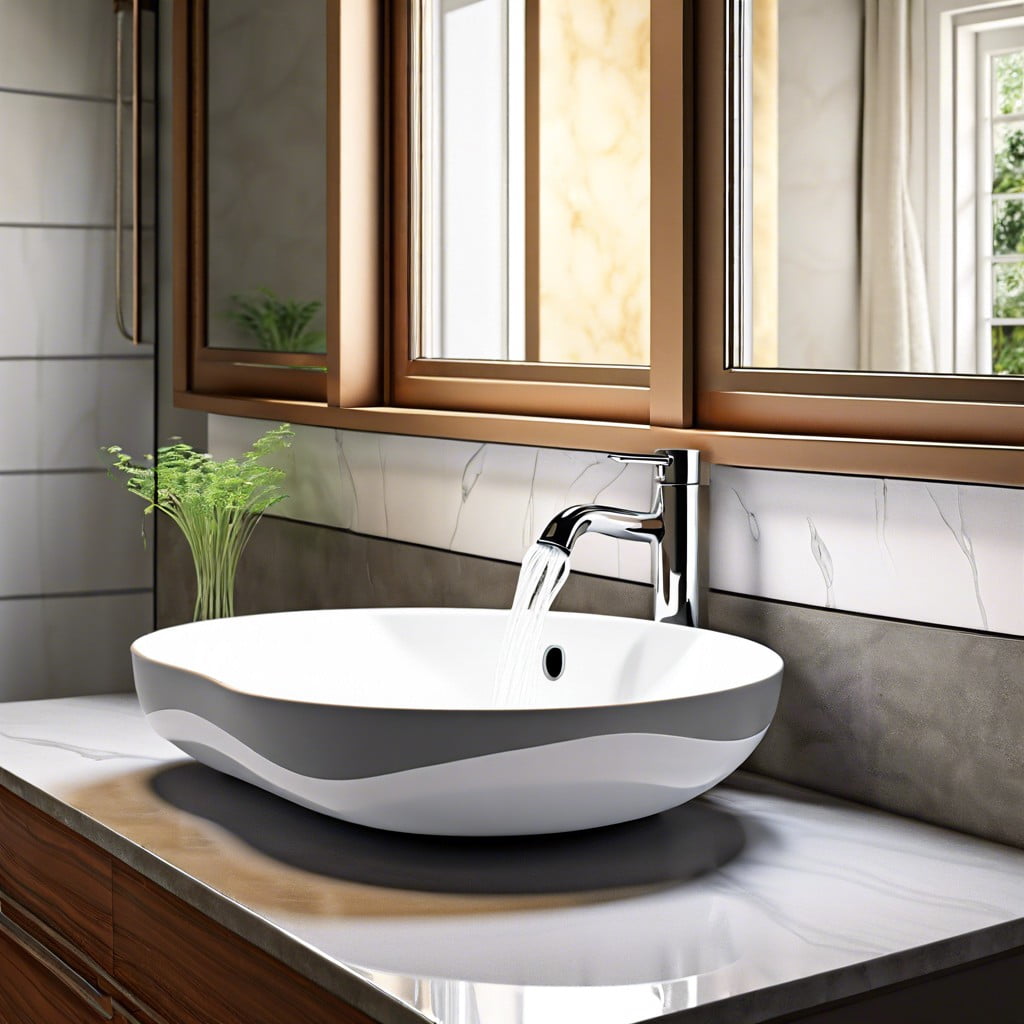
Bathroom sink drains often harbor an unpleasant secret beneath their gleaming faucets: odor. Unbeknownst to many, a myriad of culprits can be the source of these lingering smells.
Bacteria and biofilm: A cocktail of toothpaste, soap residue, and dead skin provides a feast for bacteria. As they digest this organic matter, a smelly biofilm can form, becoming the olfactory offender we detect.
Dry P-trap: This curvy pipe under the sink is designed to hold water, forming a seal that prevents sewer gases from wafting into your bathroom. However, if it dries out, it’s an open ticket for those gases to rise.
Clogs: Hair, soap scum, and other debris can lead to clogs, which trap odor-causing bacteria. Over time, they not only emit an odor but can also slow drainage, compounding the issue.
Sewer gas leaks: Rare but more serious are leaks in the plumbing system that allow sewer gases to escape, which could indicate a compromised water seal or a broken pipe.
Understanding these culprits is the first step in addressing the problem at its core rather than just masking odors. Solutions range from simple DIY fixes to cases that require professional intervention, ensuring the aroma of your bathroom is as clean as its surfaces.
The Role of P-traps in Preventing Odors
A common misconception is that a sink’s P-trap is merely a curvy pipe under the sink, but it’s a key player in the fight against odor. Essentially, it holds water to create a seal that prevents sewer gases from rising into your bathroom. Without this U-shaped marvel, each time you entered the room, your nostrils would be assaulted by an unwanted symphony of sewer scents.
However, P-traps aren’t foolproof. They can dry out, especially in sinks that are rarely used, breaking the seal and allowing smells to seep through. It’s like a castle gate left open – nothing is stopping the enemies from marching right in. Similarly, if debris accumulates in the P-trap, it can become a breeding ground for odor-causing bacteria. A stagnant P-trap is essentially inviting odors for a prolonged stay.
The takeaway here is simple but crucial: keep the P-trap well-maintained. Running water through infrequently used sinks can prevent the trap from drying out. For those who love home hacks, pouring a mixture of vinegar and baking soda down the drain can help eliminate the bacteria feast and maintain a scent-free sink.
Solutions for Eliminating Foul Smells
Neutralizing persistent odors from your bathroom sink drain can be simpler than you think. Begin with boiling water – it’s a powerful agent that dislodges gunky residue contributing to the stench. Pour it slowly but be cautious of the porcelain, which can crack under extreme temperature changes.
For an enhanced effect, baking soda and vinegar form a fizzing cocktail that battles odor-causing bacteria. Sprinkle half a cup of baking soda down the drain, followed by an equal amount of vinegar. This natural concoction breaks down organic matter without harsh chemicals. Seal the reaction in for optimal impact, capping the drain for a few minutes before rinsing through with more hot water.
Lemon peels are more than just a garnish. When ground up by a disposal unit, they release citrus oils, which freshen the air and have mild antibacterial properties. Toss a peel or two down the drain for a quick deodorizing fix.
For relentless smells, consider a commercial enzyme-based cleaner. These formulations target the organic substances directly, efficiently dismantling the odor at its source. Follow directions closely for the best results.
Habitual flushing of the drain with water prevents residues from lingering and ensures the trap remains full, sealing out sewer gases. While not glamorous, prompt attention to backups or slow drainage can prevent problems before they escalate into a full-on assault on your olfactory senses.
Tips for Regular Sink Maintenance to Prevent Odor Build-up
Regular sink maintenance is your first line of defense against those unpleasant smells. To make it a simple and effective process, start by running hot water through the sink after each use. This helps dissolve any lingering substances that might stick around and start to smell.
Bi-weekly, give your sink a more thorough cleaning by pouring a mixture of baking soda and vinegar down the drain. Let it fizz for a few minutes; this not only combats odors but can help dislodge build-up before it becomes a problem.
Don’t underestimate the power of lemon peels or essential oils, either. Grinding up lemon peels in your garbage disposal, if you have one, or adding a few drops of essential oils into the sink can keep things smelling fresh.
Lastly, make it a habit to check for leaks or slow drainage. Moisture from leaks can foster mold and mildew, while slow drainage might indicate a developing clog – both can contribute to odors. Tackle issues promptly to keep your bathroom oasis smelling as clean as it looks.
When to Consult a Plumber for Drain Smells
Sometimes the issue with your sink’s malodorous drain isn’t something you can handle alone. If simple cleaning and standard maintenance haven’t nipped the problem in the bud, it’s time to call in the cavalry, that is, a professional plumber. One of the clear signs that you need expert help is when the smell persists even after you’ve thoroughly cleaned the P-trap and used various home remedies.
Enduring odors could indicate a deeper issue, like a vent pipe blockage. This part of your plumbing system helps to regulate the air pressure in your pipes and when it’s blocked, it can cause water in the P-trap to get siphoned away, allowing sewer gases to rise up. Only a plumber can adequately address this problem.
Another red flag is the presence of gurgling noises following the bad smell, signifying a potential blockage in the main sewer line. Such a blockage could escalate into a full-blown, health-hazardous backup, and you do not want to be on the receiving end of that mess.
Lastly, recurrent clogs accompanied by odors are a telltale sign that the issue is beyond the reach of a plunger or over-the-counter drain cleaner. It’s likely that an accumulation of soap scum, hair, and other materials is lining the pipes, reducing flow and causing scent-causing bacteria to thrive. A professional has the tools and expertise to clear out these blockages thoroughly and sanitize the pipes, giving you back a fresh-smelling bathroom.
Recap
